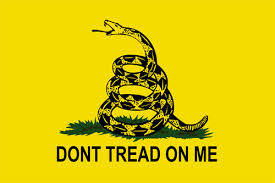
It is easy to think that the United States, after having gained independence, had no problems and was rather a new fledgeling country on the brink of prosperity, power and ultimate North American hegemony. It is certainly true that the United States was starting out on one of the greatest journeys any one country will ever experience. It is also true that power and prosperity was in America’s future. But the notion that the situation of early America was perfect is not based in truth. As Benjamin Rush stated, “The American War (the War for Independence) is over; but this far from being the case of the American Revolution. On the contrary, nothing but the first act of drama is closed. It remains yet to establish and perfect our new forms of government, and to prepare the principles, morals and manners of our citizens for these forms of government after they are established and brought to perfection.” Rush appropriately points out that although the Revolution was over, the greatest, and most difficult work was still ahead of the founding fathers. During the early years of the United States, there was some trial and error, some political faux pas and maybe one or two “american revolutions” with a small-case A. In this post we will examine three of these uprisings in early American history: Shays’ Rebellion of 1786-1787, the Whiskey Rebellion of 1791-1794 and Fries’ Rebellion of 1799-1800.
The first major insurrection against Congress occurred in Massachusetts in 1786. It was led by Daniel Shays and the name of the uprising is “Shays’ Rebellion.” The uprising occurred because of economic problems and harsh financial policies of the government. At first, Shays’ Rebellion was a mild movement along the same lines as a current “Occupy” movement. Farmers in Massachusetts shut down courts and prevented tax and debt collections. However, after several protesters were arrested the movement turned into an armed rebellion. In January 1787, the insurgents attempted to seize the Springfield Armory but were repelled by Massachusetts state militia. Governor James Bowdoin sent Massachusetts militia to raid Petersham, the rebel headquarters. Eventually the rebellion ended in February 1787, at a fight at Sheffield where the insurgents were scattered. Shays and the other leaders of the insurrection fled. The rebellion occurred at a pivotal time in American history. It was the period in which the Congress was working on transitioning from the Articles of Confederation to a brand new Constitution. Although Shays’ Rebellion failed in the short term, it did ensure that the desires and liberty of the people would be weighed during this critical founding period. Some credit Shays’ Rebellion as the reason that the Bill of Rights was created. Shays and his men set out to retain their hard-won liberty and despite their apparent failure they succeeded in what they set out to do: ensure their representation in the new government.
In 1791, the United States was again faced with rebellion within its borders. This time in Western Pennsylvania. Like Shays’ Rebellion, it also found its primary cause in taxes, more specifically a tax on whiskey. It is for this reason that this insurrection is called the Whiskey Rebellion. At first, the rebellion was little more than tax evasion but it soon grew violent in the year 1794. The insurgents claimed that they were fighting against taxation without representation but President Washington argued that Congress had the power to tax. He personally led a militia against the rebels but they dispersed before he arrived.
The last insurrection that we will examine is Fries’ Rebellion among the Pennsylvania Dutch during the years of 1799 and 1800. Because of the recent “Quasi War” with France on the High Seas, the US Congress passed another tax and there was another tax revolt. Its leader was John Fries and the center of the uprising was Southwestern Pennsylvania. The militias were once again called for and arrests were made. Fries’ rebels attempted to free several prisoners but failed and the revolt ended with the arrest of Fries and others. Although Federalist politicians in the government called for his execution Fries was pardoned by President John Adams.
These three brief episodes simply reinforce the notion that America was a nation founded of the people, by the people and for the people and that it would not perish from the earth. After Shays’ Rebellion, Thomas Jefferson remarked, “A little rebellion, now and then, is a good thing.”
